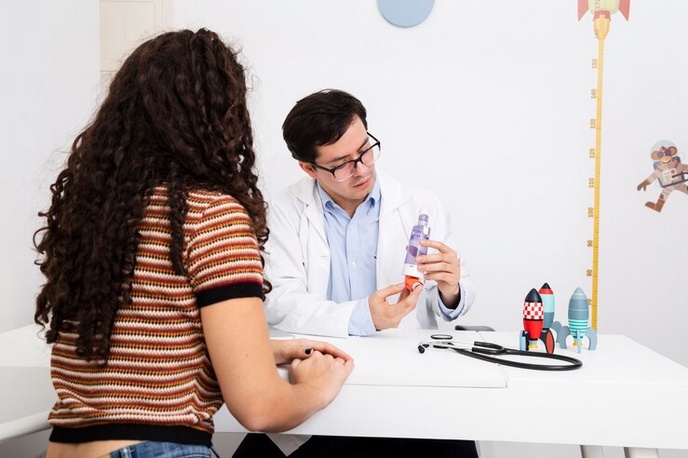Introduction
Phlebotomy, the practice of drawing blood from patients for diagnostic purposes, is a fundamental skill for medical professionals. Whether you are a nurse, physician, or medical assistant, having a solid understanding of phlebotomy techniques is essential for providing quality patient care. In this article, we will explore the essentials of phlebotomy courses for medical professionals, guiding you through the process of acquiring the necessary skills and knowledge to excel in this field.
The Importance of Phlebotomy for Medical Professionals
Understanding the Role of Phlebotomy
Phlebotomy serves as a critical component of patient care, enabling medical professionals to obtain blood samples for diagnostic testing. By accurately collecting blood specimens, medical professionals can gather valuable information about a patient's health, aiding in the diagnosis, treatment, and monitoring of various medical conditions. Phlebotomy is not only about drawing blood but also about ensuring patient comfort, maintaining safety protocols, and preserving the integrity of the collected samples.
Enhancing Patient Care
Proficiency in phlebotomy allows medical professionals to offer comprehensive care to their patients. By being able to perform blood draws competently, medical professionals can reduce patient discomfort and anxiety associated with the procedure. Additionally, having the skills to collect blood samples efficiently minimizes the need for repeated attempts, which can cause unnecessary pain and potential complications. By mastering phlebotomy techniques, medical professionals can contribute to a positive patient experience and overall satisfaction.
Essential Phlebotomy Course Components
Anatomy and Physiology
A thorough understanding of human anatomy and physiology is crucial for medical professionals embarking on a phlebotomy course. Knowledge of the circulatory system, including the veins, arteries, and capillaries, is essential for successful blood collection. Understanding the structure and function of these blood vessels helps medical professionals identify suitable veins for venipuncture and anticipate potential complications.
Blood Collection Techniques
Phlebotomy courses provide medical professionals with comprehensive training in various blood collection techniques. These techniques include venipuncture, the process of puncturing a vein to obtain blood, and fingerstick or heelstick methods for collecting capillary blood. Medical professionals learn proper needle insertion angles, vein selection strategies, and methods for minimizing patient discomfort during the procedure. Additionally, courses cover techniques for collecting blood from patients of different age groups, as the approach may vary depending on the patient's age and condition.
Infection Control and Safety
Maintaining strict infection control measures is of utmost importance in phlebotomy. Medical professionals must learn and adhere to proper hand hygiene, personal protective equipment (PPE) usage, and disposal of sharps and biohazardous materials. Phlebotomy courses emphasize the importance of preventing the transmission of infectious diseases between patients and healthcare providers. By implementing rigorous infection control practices, medical professionals ensure the safety of both themselves and their patients.
Laboratory Procedures and Specimen Handling
Phlebotomy courses provide medical professionals with insight into laboratory procedures and the handling of blood specimens. Medical professionals learn about proper labeling, documentation, and transportation of blood samples to maintain accurate records and prevent any mix-ups or errors. Understanding the importance of sample integrity, temperature control, and timely delivery to the laboratory is crucial for obtaining reliable test results.
Communication and Patient Care
Effective communication and patient care skills are essential components of a phlebotomy course for medical professionals. Medical professionals learn how to establish rapport with patients, address their concerns, and provide clear instructions before, during, and after the phlebotomy procedure. Courses emphasize the importance of empathy, professionalism, and maintaining patient privacy and dignity throughout the process. By developing strong communication and patient care skills, medical professionals can create a positive and supportive environment for their patients.
Conclusion
Phlebotomy Course is an indispensable skill for medical professionals, enabling them to collect blood samples accurately and efficiently for diagnostic purposes. By mastering the techniques and principles taught in phlebotomy courses, medical professionals can enhance patient care, reduce patient discomfort, and contribute to accurate diagnostic outcomes.
The essentials of a phlebotomy course for medical professionals encompass a comprehensive understanding of anatomy and physiology, proficiency in blood collection techniques, adherence to infection control and safety protocols, knowledge of laboratory procedures and specimen handling, and effective communication and patient care skills. By acquiring these essential skills, medical professionals can provide quality care to their patients and contribute to the overall success of healthcare delivery.
In conclusion, navigating the veins through a phlebotomy course is a vital step for medical professionals seeking to enhance their skills and broaden their scope of practice. By investing in phlebotomy training, medical professionals can acquire the necessary knowledge and techniques to perform blood draws competently and contribute to the overall well-being of their patients.


No comments yet